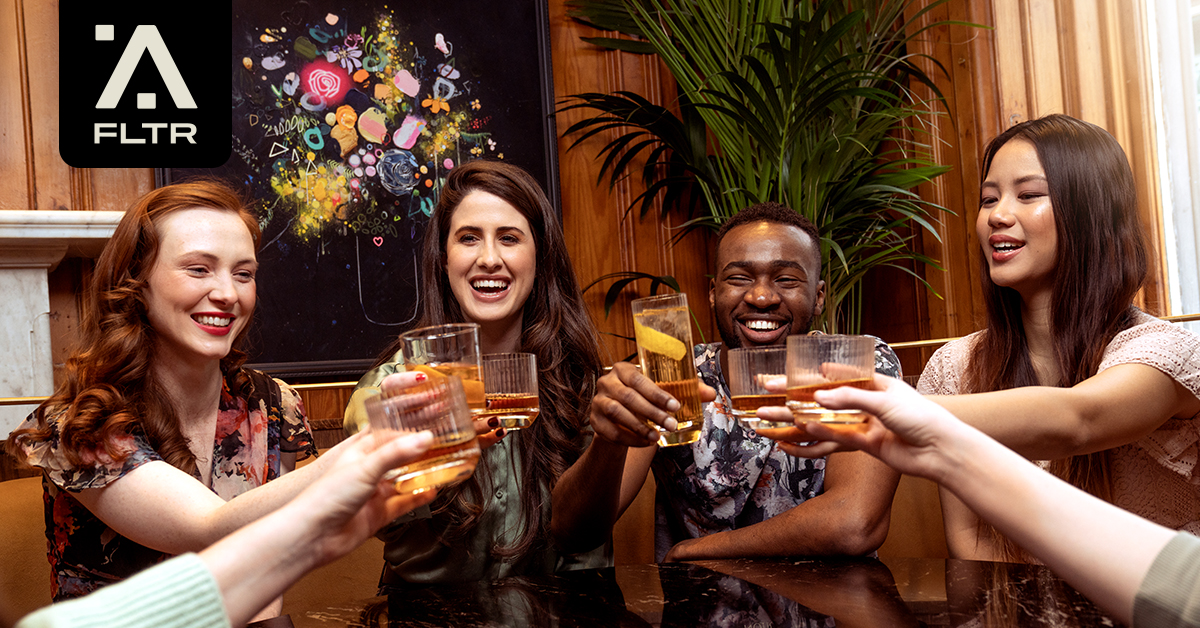
The sober curious movement has graduated from buzzy trend to industry mover with brands like Captain Morgan going zero-proof and investment flooding into new non-alcoholic brands. Now, technology companies are hoping to improve processing techniques for the category.
ALTR is one startup hoping to build on the increased consumer demand for higher quality NA products by developing nanofiltration technology to efficiently dealcoholize wine, beer and spirits without affecting taste.
Starting with wine, the B2B company intends to solve the “hard problem” of removing alcohol from drinks while maintaining the same aromas and flavors that make high-end wine and premium spirits economic drivers in the alcoholic beverage industry. ALTR announced this week it had secured an undisclosed amount in pre-seed funding led by FTW Ventures with additional investments from Bluestein Ventures, Tet Ventures, Joyance Partners, winetech investment firm Xinomavro Ventures and Netherlands headquartered accelerator-VC Rockstart.
The tech startup is not just aiming to remove alcohol but “delicately” reduce alcohol in beverages on the molecular level using an innovative membrane technology that will allow drink makers to choose how little (if any) alcohol they would like in a product while maintaining a similar profile to more alcoholic versions.
“We don’t want a binary world of drinking and not drinking. We believe in what we call spectrum drinking,” ALTR founder Richard Schatzberger told BevNET on Tuesday.
This approach could be a winning investment as around three-quarters of Gen Z (71%) and Millennials (73%) closely/occasionally follow or are interested in trying a sober curious lifestyle as it aligns with priorities like health and wellness, according to data compiled by Mintel.
Schatzberger’s background is in technology working on early versions of touchscreen cell phones at Motorola and helping the AI team behind Siri as well as co-founding an advertising and marketing agency, co:collective. After meeting Daron Hollowell, whose background is in music and entertainment, the two began to talk about how they could create a more efficient and inclusive experience for sober curious people using technology. As the pandemic set in and consumers’ relationships with alcohol changed, Schatzberger became increasingly interested in reinventing how wine and liquor is dealcoholized.
Eventually Hollowell and Schatzberger made contact with nanomaterial expert Professor Lyderic Bocquet at PSL University in Paris to collaborate on the idea. Since then, ALTR has built out a team that includes nanomembrane expert Bo Pan, who previously headed membrane innovation at Chinese biotech company Pall Corporation.
ALTR self-funded and raised enough money through friends, family and angel investors to develop what Schatzberger calls a “technology dial” that is able to filter ethanol molecules from liquid, creating different concentrations of alcohol in a beverage without compromising flavor.
“We’re at this lucky moment in the world where technological innovation and market opportunities have come together at the right point for us,” Schatzberger said. “We’re building a company that’s all about choice. That’s choice for the beverage makers, choice for the restaurant buyers, choice for the bartender and what kind of drinks they want to make and – ultimately – that’s choice for consumers.”
Currently, non-alc wine and spirits are made in primarily two ways: vacuum distillation and reverse osmosis. Vacuum distillation gently heats an alcoholic beverage while keeping the temperature from rising too high, which would impact flavor (dealcoholization industry leader BevZero uses a version of this process with its spinning cone column technology). Vacuum distillation can cause a lot of “disassembly” of the flavors, Schatzberger said.
Reverse osmosis uses pressure to filter ethanol alcohol and water from the concentrated beverage. The water is heated to boil off the alcohol and then slowly incorporated back into the concentrated liquid to make an alcohol-free version of the drink. Yet, this technique “is not as selective as you’d want” and “hurts the craft” that goes into making an alcoholic product while also being very energy intensive and inefficient, Schatzberger said.
In an explanation of FTW’s investment posted to Medium, the venture firm said that ALTR’s lower energy consumption membrane processes make the innovation “more viable for medium to small-scale productions. The overall membrane processes utilize medium to low pressure range[s], also minimizing the degree of temperature arising during the process run, with least disruption to taste/aroma profile.”
The FTW piece goes on to describe ALTR as a tech startup building on existing technology to create a novel design that addresses the industry-wide challenge where winemakers and craft distillers or brewers can determine the ABV while maintaining the flavor profile and character of the product.
Along with its recent funding, ALTR will be part of Rockstart’s Fall 2023 AgriFood accelerator in Copenhagen where it will provide “hands-on help to grow” the company’s B2B platform.
Bluestein Ventures’s undisclosed investment in ALTR is the firm’s first foray into the NA category even though it has wanted to work in the low- to no-alcohol category for the past few years.
“We hadn’t found the right investment given that most of today’s technology and products in the space aren’t yet up to par for consumers,” Bluestein VP Amira Khatib wrote in an email statement. “ALTR is core to our mission by providing healthier beverage options to consumers that are shifting toward conscious consumption.”
This idea of conscious consumption is driving the industry with 82% of non-alcoholic drink buyers also purchasing alcoholic drinks, according to a 2022 report from NielsenIQ. The majority of sober curious consumers are still drinking alcohol but adjusting their relationship with boozy beverages.
“While the market opportunity for NA and low ABV is huge and growing rapidly…beverages today fall short of delivering on consumer expectations of an alcohol experience (taste, mouthfeel, etc.). This is because most brands and manufacturers are relying on legacy methods that are expensive and strip the flavor.”